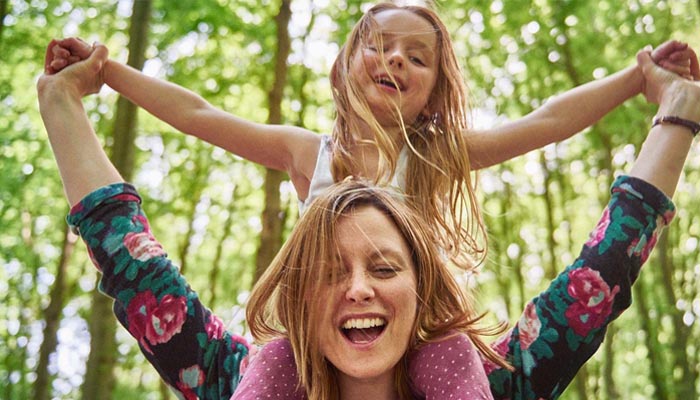Taking action on plastics and packaging
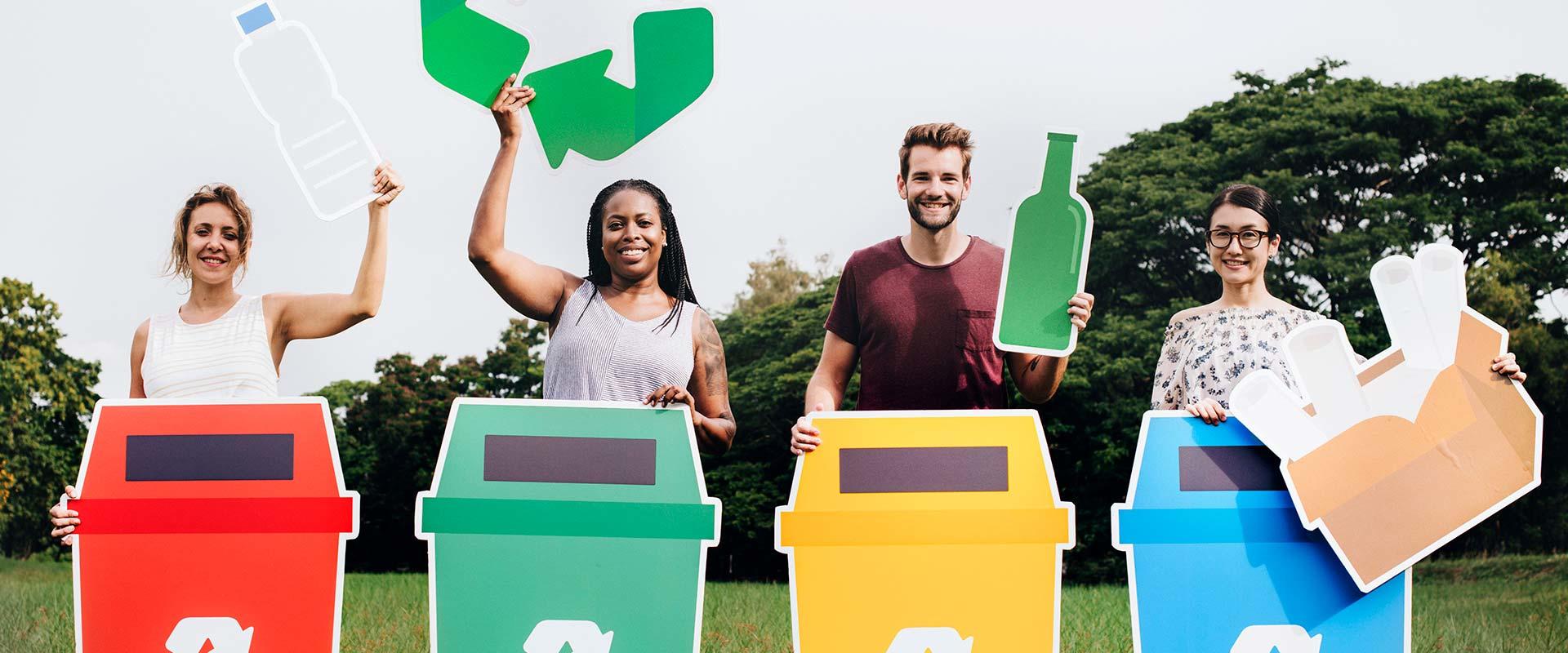
Plastic is durable, hardwearing, economical, lightweight and convenient. It’s the perfect way to transport food and beverages while keeping them sterile, hygienic and safe. But it’s many of these very advantages that make it a problem when it ends up in nature.
Source: UN Environment Programme
Getting drastic on plastic
As we all know, the properties that made plastic so popular, now threaten the planet. When littered it takes a very long time to break down, up to 500 years in landfill, just under that in our oceans. As it breaks down to smaller and smaller pieces, it can produce microplastics. And when it does eventually fully break down, it might release chemical pollutants.
Yet, plastic packaging plays an important role in safely delivering high-quality food and beverages to citizens and reducing food loss and waste. Therefore, any alternative needs to be carefully considered.
The challenges
Replacing plastic packaging and reducing virgin plastic use is not an easy task, particularly for food and beverage companies that must adhere to stringent consumer health and safety regulations. The availability of food-grade recycled plastics, is currently very limited on industrial level for plastics other than polyethylene terephthalate (PET). Other suitable materials, such as glass and metal, can be used but also come with their own challenges including being heavier, so require more fuel to transport.
What are we doing about it?
Pact and ready to go
In 2018, we were a founding member of The UK Plastics Pact, a collaboration of UK businesses, NGOs and governments working toward four goals:
- Eliminate problematic or unnecessary single-use packaging through redesign, innovation or alternative (reuse) delivery model.
- 100% of plastics packaging to be reusable, recyclable or compostable
- 70% of plastics packaging effectively recycled or composted
- 30% average recycled content across all plastic packaging.
In 2020, we also signed the European Plastics Pact, reinforcing our commitment to achieve as close to 100% recyclable or reusable packaging and reduce the use of virgin plastics by a third by 2025.
We want to keep plastic in the economy and out of the ocean.
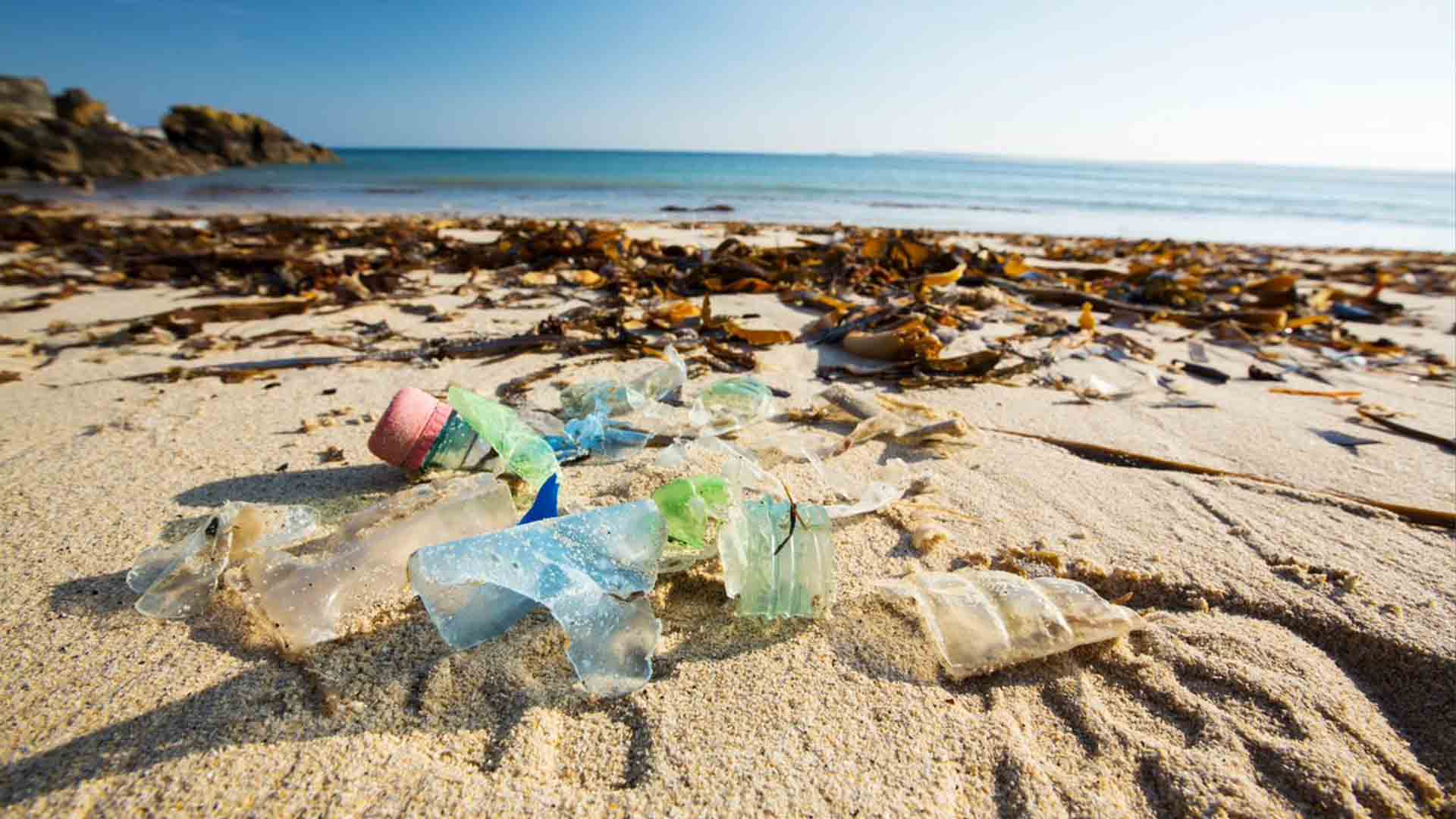
Why even 100% is not enough
Like us, many multinational food and beverage companies are aiming for as close to 100% recyclable or reusable packaging by 2025. We've made steps in the UK and Ireland towards achieving this goal.
In 2023, our Purina ONE DualNature range moved to mono-material packaging, which can be recycled in stores in the UK and at kerbside in Ireland. By 2025, Purina expects more than 95% of its packaging to be designed for recycling and will continue to work towards achieving 100%.
In 2022, we announced major packaging innovations to Quality Street and KitKat. Quality Street moved its twist-wrapped sweets over to paper packaging and KitKat launched wrappers made with 80% recycled plastic that can be recycled at stores across the UK and in household recycling in Ireland. As a result of both moves, Nestlé helped to eliminate more than three billion pieces of packaging from its supply chain.
But with only 14% of all plastic actually recycled now, one ambitious commitment alone is not enough to solve the packaging challenge.
We all need to rethink the way we produce and consume – to change the way we interact with packaging. We need multiple solutions for this complex problem. It’s as much about changing our approach to the materials we use as it is about changing the recycling system.
We’re acting urgently to:
- Eliminate unnecessary packaging
- Help to develop well-functioning collection, sorting and recycling schemes
- Adopt alternative materials such as paper, bio-based plastic and mono-material (single layer) packaging that’s recyclable
- Introduce new refill / reuse systems
- Label our packaging with recycling information to help consumers dispose of it in the right way
- Encourage our suppliers to increase the availability of recycled food-grade plastics by continuing to expand the proportion of recycled plastics in our packaging.
We know we can’t do it alone
The necessary changes will need collaboration and innovation on a global scale. By working with partners around the world, from materials scientists and packaging specialists to community groups and NGOs, governments and other companies, we want to create a lasting transformation – for people and the planet.
Packaging shouldn’t cost the Earth
That’s why, by 2025, we aim for as close to 100% of our packaging to be recyclable or reusable. We want to make sure that none of our packaging ends up in landfill or as litter. So we’re rethinking packaging with new materials and alternatives like reusable packaging and refill options. One example includes the introduction of Nescafé Gold Blend and Nescafé Original instant coffee refill pouches that can be recycled in stores and helps save money while reducing packaging.
We have committed to one-third reduction of virgin plastics by 2025. Also, we’re supporting recycling schemes that serve our communities around the world. We’re speeding ahead with our sustainable packaging transformation – for people and the planet.
We understand that achieving 100% recyclability is not enough, we must go beyond that. Our objective is to create packaging beneficial for both people and the planet, and that's why our ambition is for a world where none of our packaging ends up as litter, in landfill or in our oceans. We know this is a complex challenge, but we will not lose momentum when it comes to exploring packaging innovation and achieving a future free from waste. We will continue to phase out difficult to recycle packaging and design packaging to be recyclable, alongside advocating for well-designed policy making to drive packaging circularity and infrastructure development. As we explore new solutions, we remain committed to never compromising the health of our consumers. The safety and quality of our food and beverages are non-negotiable."
Will it go round in a circle?
For a circular economy to succeed, packaging will need to be:
- Reusable, recyclable or compostable
- Easily collectible and convertible into new material or compost.
- Disposed of correctly by consumers (all of us) so that it can be reused, recycled or composted.
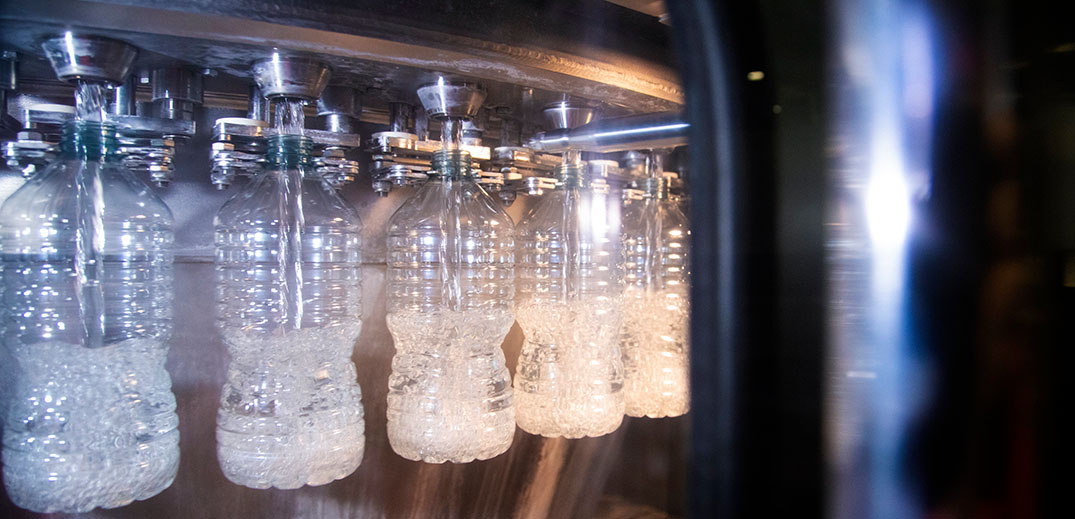
Promoting circular packaging
Packaging is critical for ensuring the quality and natural purity of our products. Natural mineral and spring waters are legally required to be packaged at source. They must be safe to drink and suitable for many different situations and locations.
We share the growing public concern about single use and waste plastic ending up in our oceans. That’s why we’re committed to only use materials that are recyclable. But we know we must go further to become fully circular in the way we design and manage packaging.
All BUXTON bottles are made from 100% recycled plastic (excluding caps and labels), while remaining 100% recyclable.
We’re aiming for full circularity of beverage bottles, working with stakeholders and industry partners to set in place effective and efficient recycling systems and infrastructure. We support the UK-wide Deposit Return Scheme. And we’re researching and developing new materials for the future of our industry.
We’re encouraging employees, consumers and stakeholders to recycle more and we’re helping to raise consciousness and understanding of the need for circularity.
Reduce, reuse, recycle, repeat
We’re committed to finding recycling options wherever we can. But even 100% recyclability is not enough to successfully tackle the plastics waste crisis.
There is a shortage of recycling infrastructure in the UK. This is a challenge for business and the consumer.
We need to address the situation now, to make it easier for people to recycle and for materials to be recycled. We need to look at every option for resolving the plastics waste crisis. And it will have to be a collective effort. Together, we need to pioneer alternative materials, develop reusability and recycling technologies and inspire new behaviours.
What are we doing to change things?
We’re engaging with consumers, business partners and all of our Nestlé colleagues. We’re supporting the design and implementation of effective mandatory Extended Producer Responsibility (EPR) schemes.
Globally, we’ve identified 20 countries that account for 50% of our plastic usage, where we’ll work to increase recycling rates and develop waste management infrastructure. We have also identified 12 countries, accounting for more than 10% of our plastic usage, where we will collect and recycle the same amount of plastic as we use in our products.
Collection and recycling infrastructure varies worldwide. So, we’re adapting for each city, country and region. We want to invest where it will have maximum positive impact.
To achieve our goal, we’re:
- reducing our use of packaging material in general
- phasing in reusable and refillable systems
- pioneering alternative packaging materials
- supporting infrastructure, such as filling stations, and
- raising public awareness.
Below are just a few of our recent initiatives, in the UK and globally:
Plastic Energy partnership
Globally, we’ve partnered with Plastic Energy to explore the possibility of a large-scale commercial recycling facility that would be the first-of-its-kind in the UK.
Plastic Energy, which already has two similar recycling plants in Spain, uses specialist technology to transform traditionally hard-to-recycle plastic waste, such as confectionery wrappers, dry pet-food pouches and breakfast-cereal bags, into recycled oils called TACOIL. These can then be used as a replacement for fossil oils to make food-grade plastics.
Collaborating with Biffa
Nestlé Waters UK and Biffa, the UK’s leading sustainable waste management business, have partnered to help create a circular economy for plastics in the UK.
Biffa will be supporting Nestlé Waters UK to achieve its commitment of making every Buxton bottle from 100% recycled PET (recycled polyethylene terephthalate or rPET) by 2021. They’ll achieve this by collecting recyclable PET bottles and reprocessing them into rPET here in the UK.
The partnership will enable Nestlé Waters UK to significantly reduce the amount of virgin plastic in circulation and lead the shift to using high-quality food-grade recycled PET from the UK. At the moment, this is sourced in Europe.
Project STOP
Plastic waste in the ocean poses a particular threat to Southeast Asian countries. That’s why we’ve become the first food company to partner with Project STOP.
The initiative is developing partnerships with cities and governments in Southeast Asia. We’re creating sustainable, circular and low-cost waste management systems that capture as much value from waste as possible.
It supports many existing local initiatives and informal waste pickers in Indonesia’s coastal areas. We’ll take the learnings from this project to other countries where we operate in an effort to deliver ‘plastic neutrality’.
TerraCycle
Our confectionery and pet food brands are in partnership with TerraCycle, the social enterprise behind some of the world’s biggest waste-reduction initiatives.
Flexible plastic packaging – pouches, bags and wrappers from single bars, blocks and multipacks – is now accepted through a Confectionery Recycling Programme and a Petfood Recycling Programme that turn the accumulated waste into new plastic items.
The partnership provides a short-term solution to packaging waste while we develop new technology.
Loop
We’re also working with TerraCycle to develop reusable packaging through a subscription home delivery service called Loop.
Deliveries are made in customised, durable packaging that is then collected, cleaned, refilled and reused. We’ve been testing the system in the US and France.
We’re also trialling reusable stainless-steel containers for our Haagen-Dazs brand in the US and Nesquik, Ricoré and Chocapic Bio with Carrefour, in France.
Watch out for announcements about a rollout in the UK & Ireland.
Alternative materials
We’re working with packaging material suppliers and the Nestlé Institute of Packaging Science to develop alternative forms of packaging for our products, made from responsibly managed and renewable resources.
Smarties, for example, was the first global confectionery brand to switch to recyclable paper packaging. This will remove approximately 250 million plastic packs sold worldwide each year.
Purina has launched a first-of-its-kind mono-material pet food pouch. The new pouch addresses a key challenge - to simplify plastic structures in order to make them recyclable, without compromising on the functionalities of food-grade packaging.
We’re reducing the amount of plastic and cardboard used in our cereal packages. This will save about 618 tonnes of plastic and cardboard packaging each year. It will also reduce the amount of road haulage needed to transport the cereals, saving 180 tonnes of CO2 each year.
We introduced bio-based lids and scoops made from sugar cane and its by-product for a range of our SMA and Nestlé Health Science products for babies and children. These bio-based plastics are made from a renewable plant material that can be continually replenished and that absorbs carbon dioxide from the atmosphere.
The Ellen MacArthur Foundation
We’re a founding signatory of the New Plastics Economy Global Commitment. Led jointly by The Ellen MacArthur Foundation and the UN Environment Programme, the initiative brings together global companies producing 20% of all plastic packaging, plus governments, NGOs, universities, industry associations, investors and other organisations, to tackle the plastic waste problem.
As signatories, we’ve committed to three actions:
- Eliminate all problematic and unnecessary plastic items.
- Innovate to ensure that the plastics we do need are reusable, recyclable, or compostable
- Circulate all the plastic items we use to keep them in the economy and out of the environment.
Recycling with Veolia
We’re working with Veolia on waste collection, sorting and recycling of plastic materials, particularly flexible plastic packaging. The partnership will also explore technologies to establish viable models of recycling in different countries. This includes pyrolysis technology, which can produce food-quality plastic.
We hope the project will increase the recycled content of our bottled water packaging to 35% and of our overall product packaging to 15% by 2025.
The bins of Buxton
Back in 2010, in Buxton, we collaborated on a recycling and education programme with RECOUP recycling. We installed 60 ‘on-the-go’ recycling and general-waste bins in the community.
By 2018, the bins were looking tired. Also, the distinction between general waste and recycling was unclear. We revamped the bins. A blue colour now makes the recycling section stand out and the sections for bottles, cans and general waste are more clearly visible.
The result has been an increase in recycling rate from 70% to 90%. As circular economy experts WRAP stated in their ‘Drinks Recycling On-the-Go’ report* that, though some on-the-go schemes achieve 81% recycling, others achieve as little as 13%.
*WRAP, ‘Drinks Recycling On-the-Go’ report (Feb 2019), study conducted by RECOUP and Valpak.
Talkin’ ‘bout R-Generation
We’ve also worked with RECOUP and environmental education group Wastebuster to develop the R-Generation plastics recycling education programme.
Our team of specialists use specifically developed learning resources rooted in the real-world challenges our planet is facing * to help young people find their voice and make the case for recycling.
Since the start of the programme, some 30,000 pupils have attended assemblies and events. They learn about how plastics are made and get engaged particularly when they discover the recycling journey of packaging and how it relates to their own lives.
*The resources support the Science, PSHE and Citizenship curricula, and the delivery of enrichment skills, such as communication, teamwork and leadership.
You may also be interested in
-
Developing packaging for the future Replacing all plastics that are non-recyclable or hard to recycle with materials that are recyclable or even biodegradable.Read More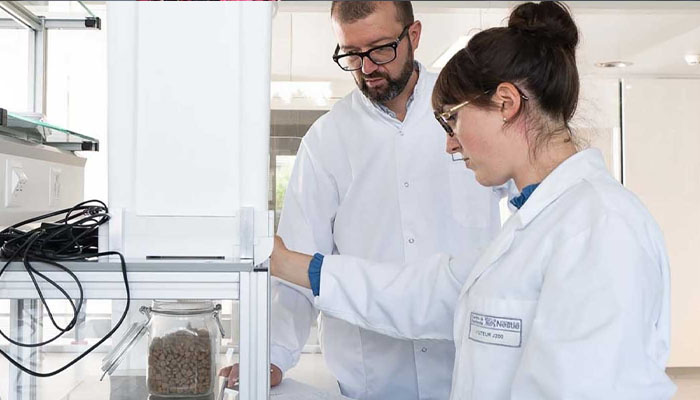
-
Picking up litter on Bridlington beach 830 pieces of litter collected from Bridlington beach as Nestlé volunteers mark Earth Day.Read More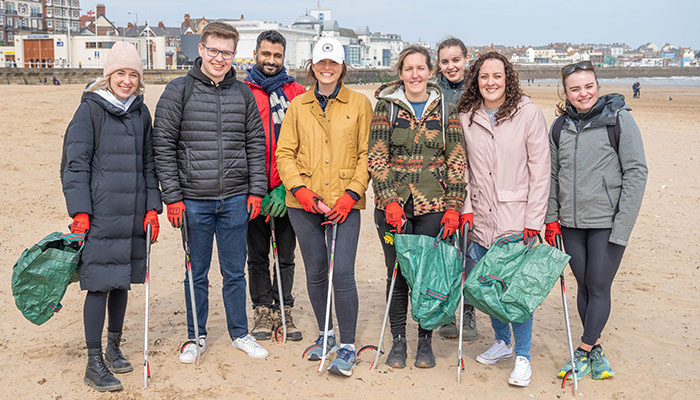
-
Changing our behaviour to save our planet We’re working to inspire good recycling and waste reduction behaviour, starting with ourselves.Read More